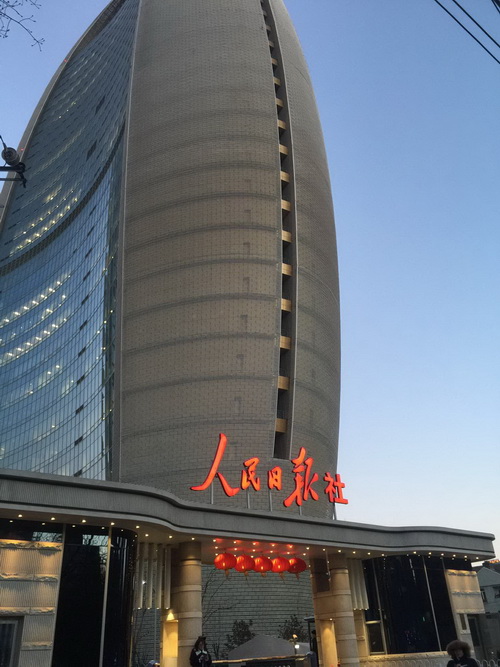In an article published in the Russian newspaper Izvestia on Tuesday, Russian Senator Konstantin Kosachev wrote that the Western mass media distorts information about the intentions of countries as the main weapon in their information war.
According to Kosachev, the main objective behind this distortion is the creation of a myth that portrays certain countries as dangerous aggressors. “Thanks to all these Orwellian statements we are now living in some sort of an inside-out reality,” the Russian senator wrote, according to an English translation of the Russian-language report in RT.
Though Kosachev was talking specifically about how the Western mass media distorts Russia’s intentions, his comments apply to all key potential U.S. rivals, including, and perhaps especially, China, which is often cast as a rising power with malign intentions and commonly singled out as the biggest threat to U.S. hegemony.
His comments also come at a time of profound time change in discourse, as media from all corners of the world battle to gain the dominant position in a fast-changing global media landscape.
On July 4, Lu Xinning, deputy editor-in-chief of the People’s Daily, urged the Chinese and Russian media to work together to break the dominance of Western discourse in a speech at the third China-Russia Media Forum in Moscow, Russia.
Lu said China and Russia should work together to seize the opportunity of this new media era. “As two big powers, strategic collaboration between our two countries is related to global stability. This same logic applies to discourse, which can have a global impact,” Lu said.
Lu noted that in recent years, the Western discourse against China and Russia has been strong and the West is trying to force its Hobbes’s “war of all against all” view on China and Russia, creating a distorted view of the two world powers.

The Chinese and Russian media cannot let others interpret the international order and international rules on their behalf, and should take the initiative in this fierce international competition over discourse, Lu added. “This new media era has redefined the way in which information is disseminated and acquired, creating a rare opportunity for developing countries and emerging market countries to win the right to speak.”
But Lu’s call to action will be far from simple, as one reader pointed out. “No doubt [this effort] will be portrayed in the Western Privileged Press as a vast communist conspiracy against ‘freedom,’ ‘rule of law,’ and of course ‘democracy’ through the spreading of evil propaganda,’ the user wrote on People’s Daily Online. Then added: “[But] I certainly hope this effort helps to refute the false narrative of the 'Empire of the Exceptionals.'”
The Russian senator in his comments also talked about countering a false narrative: “The demagogy about attacks on values and freedoms should be countered with the truth about the geopolitical motives of Western nations’ actions,” Kosachev wrote.
The practice of demonizing other countries in the Western mass media plays a key role in keeping the myth of exceptionalism alive and well, but comes at the cost of other countries’ image and progress. In the U.S., for example, elite policymakers and the mainstream media passionately believe in “American exceptionalism.” They are convinced that the U.S. is a “shining city upon a hill,” morally superior to every other country on earth, and this thinking is reflected in their powerful and influential discourse.
But the tide may be turning. On Tuesday, visiting Chinese President Xi Jinping and his Russian counterpart Vladimir Putin witnessed the signing ceremony of a media cooperation agreement in Moscow. The agreement, signed between People’s Daily President Yang Zhenwu and Sergey Mikhaylov, director general of Russia’s TASS news agency, will allow both sides to form a comprehensive strategic partnership under the principles of equality and mutual trust. Eighteen other agreements were also signed at the China-Russia media forum in Moscow on July 4.














